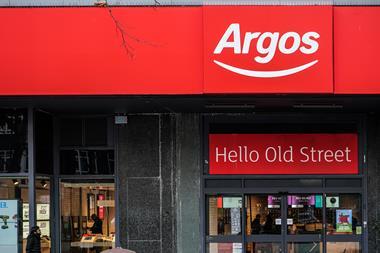Supermarkets reflect rather than shape consumer desires, and if we don’t like what we see when we look at our reflection, it is no use blaming the mirror, food industry chiefs were told.
Speaking at the IGD annual convention in London, Tesco chief executive Sir Terry Leahy said supermarkets had a responsibility towards society, but should not be blamed for all of its ills.
He said: “We shouldn’t blame the mirror if we don’t like what we see in it.
“We’re not politicians, bishops or philosophers. Tesco has been successful because we’re good at finding out what customers want and reflecting it.”
Supermarkets were all making an effort to improve product formulations and help shoppers make healthy choices, he said.
However, rising obesity was more a reflection of changing lifestyles than supermarkets intent on wooing shoppers with sugary snacks: “We’re more a symptom than a cause.
“The blanket notion that supermarkets are bad for public health is wrong.”
Tesco, in particular, was the victim of a curiously British tendency to want businesses to do well, but not too well, he added. “It sometimes seems as though some people think consumer power is fine as long as there is not too much of it.”
On the one hand, the leading supermarkets were praised as a force for good in society through creating jobs, driving down prices, improving
standards and increasing choice, while on the other they were lambasted for squeezing their suppliers, destroying value and reducing choice, he said.
“In Britain, we still sometimes prefer the good loser.” Asking retailers to somehow moderate their quest to satisfy the consumer was bizarre, he said.
“I struggle with the notion that we should only want supermarkets to do half good.”
Contrary to popular belief, the arrival of a Tesco store in a neighbourhood frequently provided a boost for local businesses, while regeneration projects had revitalised communities and created thousands of jobs, he claimed.
“Strong supermarkets can deliver a wide range of benefits for all parts of society.
“We offer levels of choice, freshness and convenience that previous generations couldn’t have imagined.”
Suppliers in the audience said they understood Tesco’s frustration at being attacked for running its business more successfully than rivals.
However, it was disingenuous of Sir Terry to claim that supermarkets merely responded to customer tastes rather than helping to shape them, said one.
Elaine Watson
Speaking at the IGD annual convention in London, Tesco chief executive Sir Terry Leahy said supermarkets had a responsibility towards society, but should not be blamed for all of its ills.
He said: “We shouldn’t blame the mirror if we don’t like what we see in it.
“We’re not politicians, bishops or philosophers. Tesco has been successful because we’re good at finding out what customers want and reflecting it.”
Supermarkets were all making an effort to improve product formulations and help shoppers make healthy choices, he said.
However, rising obesity was more a reflection of changing lifestyles than supermarkets intent on wooing shoppers with sugary snacks: “We’re more a symptom than a cause.
“The blanket notion that supermarkets are bad for public health is wrong.”
Tesco, in particular, was the victim of a curiously British tendency to want businesses to do well, but not too well, he added. “It sometimes seems as though some people think consumer power is fine as long as there is not too much of it.”
On the one hand, the leading supermarkets were praised as a force for good in society through creating jobs, driving down prices, improving
standards and increasing choice, while on the other they were lambasted for squeezing their suppliers, destroying value and reducing choice, he said.
“In Britain, we still sometimes prefer the good loser.” Asking retailers to somehow moderate their quest to satisfy the consumer was bizarre, he said.
“I struggle with the notion that we should only want supermarkets to do half good.”
Contrary to popular belief, the arrival of a Tesco store in a neighbourhood frequently provided a boost for local businesses, while regeneration projects had revitalised communities and created thousands of jobs, he claimed.
“Strong supermarkets can deliver a wide range of benefits for all parts of society.
“We offer levels of choice, freshness and convenience that previous generations couldn’t have imagined.”
Suppliers in the audience said they understood Tesco’s frustration at being attacked for running its business more successfully than rivals.
However, it was disingenuous of Sir Terry to claim that supermarkets merely responded to customer tastes rather than helping to shape them, said one.
Elaine Watson



















No comments yet